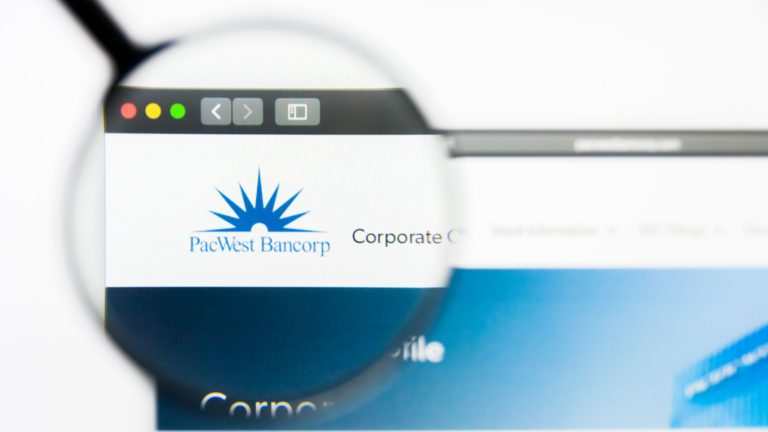Shares of PacWest Bancorp (NASDAQ:PACW) are down over 40% as regional bank fears continue to grip the markets. This has brought the bank holding company’s year-to-date loss to over 80%.
This morning, PacWest released an update in an attempt to reassure shareholders. It stated that it has explored several strategic asset sales, “including moving the $2.7 billion Lender Finance loan portfolio to held for sale in 1Q23,” which was previously announced. A sale of the loan portfolio would increase PacWest’s common equity tier 1 (CET1) ratio to 10%, compared with 9.21% as of Q1. The ratio compares a bank’s capital against its risk-weighted assets and is a measure of the ability to deal with financial stress.
Cost to Borrow PACW Stock Doubles
In its update, PacWest also noted that it has not experienced unusual deposit flows following the sale of First Republic Bank
(OTCMKTS:FRCB). As of May 2, total deposits totaled $28 billion, marking an increase since the end of Q1. Of those deposits, 75% are insured, up from 71% as of March 31 and 73% as of April 24. In addition, cash and available liquidity represented 188% of total uninsured deposits as of May 2.
Meanwhile, the cost-to-borrow (CTB) fee for PACW stock sits at 14.26%, more than doubling the rate of 5.72% on May 1. Yesterday, the CTB fee was 12.41%. This is an elevated rate, as the average CTB fee is between 0.3% and 3%.
The CTB fee represents the annual fee that short sellers must pay in order to borrow stock. A high and rising fee could signal high short seller demand, while a low and falling fee could signal declining short seller demand. A high fee could also indicate a scarcity of available shares to borrow.
Due to the high fee, it could be implied that short seller demand for PACW is high. At the same time, a high fee could also influence short sellers to sell out of their positions in order to escape the high fee.
Therefore, fear surrounding regional banks is still extremely high, which explains PACW’s high and rising CTB fee.
On the date of publication, Eddie Pan did not hold (either directly or indirectly) any positions in the securities mentioned in this article. The opinions expressed in this article are those of the writer, subject to the InvestorPlace.com Publishing Guidelines.

